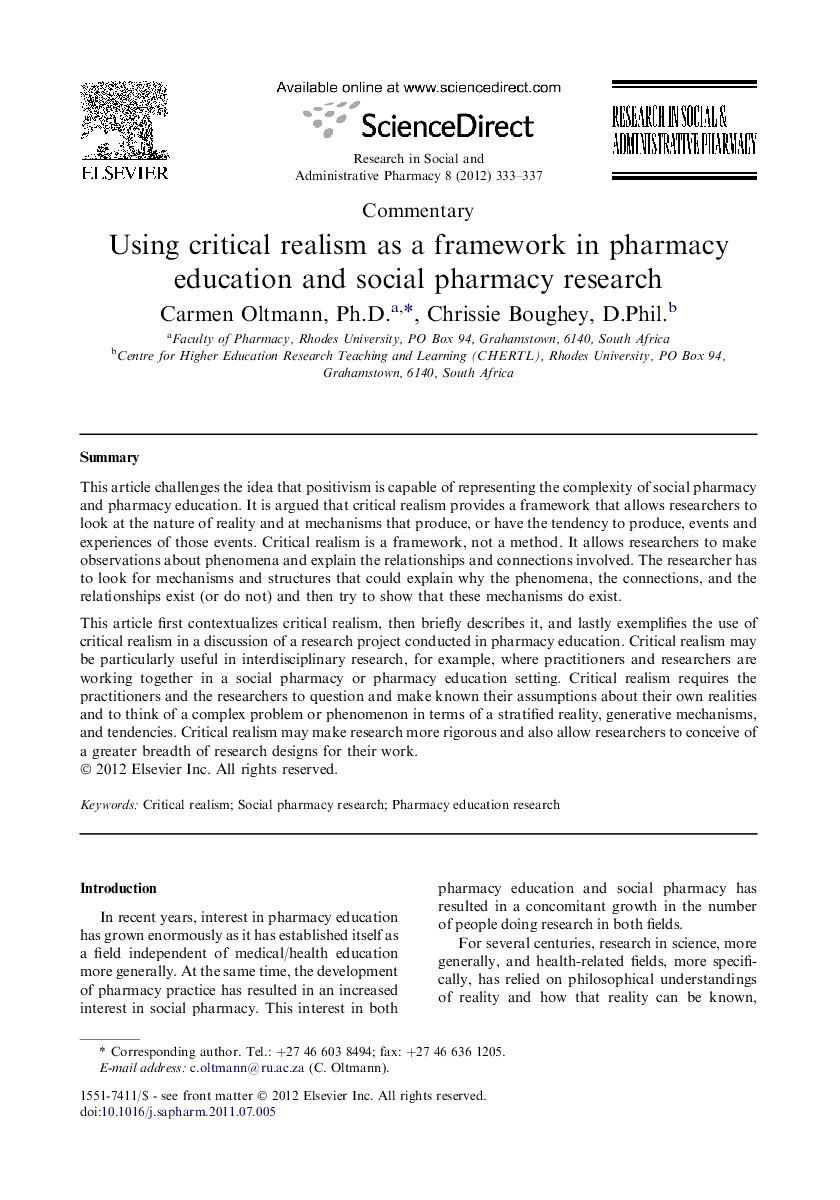| Article ID | Journal | Published Year | Pages | File Type |
|---|---|---|---|---|
| 2508960 | Research in Social and Administrative Pharmacy | 2012 | 5 Pages |
SummaryThis article challenges the idea that positivism is capable of representing the complexity of social pharmacy and pharmacy education. It is argued that critical realism provides a framework that allows researchers to look at the nature of reality and at mechanisms that produce, or have the tendency to produce, events and experiences of those events. Critical realism is a framework, not a method. It allows researchers to make observations about phenomena and explain the relationships and connections involved. The researcher has to look for mechanisms and structures that could explain why the phenomena, the connections, and the relationships exist (or do not) and then try to show that these mechanisms do exist.This article first contextualizes critical realism, then briefly describes it, and lastly exemplifies the use of critical realism in a discussion of a research project conducted in pharmacy education. Critical realism may be particularly useful in interdisciplinary research, for example, where practitioners and researchers are working together in a social pharmacy or pharmacy education setting. Critical realism requires the practitioners and the researchers to question and make known their assumptions about their own realities and to think of a complex problem or phenomenon in terms of a stratified reality, generative mechanisms, and tendencies. Critical realism may make research more rigorous and also allow researchers to conceive of a greater breadth of research designs for their work.
